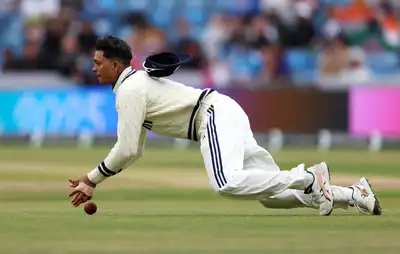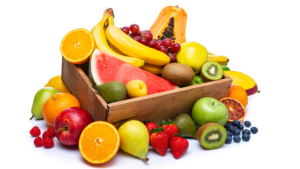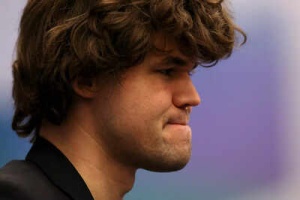The government is planning to ban the sale of high-caffeine energy drinks to children under the age of 16 in England, to prevent obesity in up to 40,000 children.
Around 100,000 children consume at least one high-caffeine energy drink every day. Once implemented, this will prevent retailers and shops from selling the drinks to children, which, according to the government, is a step to curb the negative impacts of such beverages on children’s physical and mental health, sleep quality, and educational outcomes. This move is backed by parents and teachers, as part of the government’s ‘Plan for Change’.
Negative effects of energy drinks
Energy drinks are marketed as beverages that boost energy and enhance mental alertness and physical performance. Caffeine is the main ingredient in these energy drinks. The caffeine content can vary depending on brands, with some containing as much as 500 milligrams per serving, which is equivalent to about 5 cups of coffee. Some drinks may also contain ingredients such as guarana (another source of caffeine sometimes called Brazilian cocoa), sugars, taurine, ginseng, B vitamins, glucuronolactone, yohimbe, carnitine, and bitter orange. They are linked to many physical and mental health issues, both in children and adults.
What are the experts saying?
Health experts have welcomed this change. “How can we expect children to do well at school if they have the equivalent of four cans of cola in their system on a daily basis? Energy drinks might seem harmless, but the sleep, concentration, and well-being of today’s kids are all being impacted, while high sugar versions damage their teeth and contribute to obesity,” Health and Social Care Secretary Wes Streeting said in a statement.
“Research highlights that up to one third of children aged 13 to 16 years, and nearly a quarter of children aged 11 to 12 years, consume one or more of these drinks each week, so early intervention is crucial if we are to deliver on our pledge to create the healthiest generation of children ever,” Stretching added.
Education Secretary Bridget Phillipson noted that this change is aimed at providing the children with opportunities they deserve and the ‘best start in life’.
“The proposal would make it illegal to sell high-caffeine energy drinks containing more than 150mg of caffeine per litre to anyone aged under 16 years across all retailers, including online, in shops, restaurants, cafes, and vending machines. The proposals would not affect lower-caffeine soft drinks nor tea and coffee,” Philipson said.
Discover the Health Benefits of the Rainbow Diet
“Our research has shown the significant mental and physical health consequences of children drinking energy drinks. We have reviewed evidence from around the world and have shown that these drinks have no place in the diets of children,” Amelia Lake, Professor of Public Health Nutrition, Teesside University, and Deputy Director of Fuse the Centre for Translational Research in Public Health, said.
Katharine Jenner, Director, Obesity Health Alliance, said that these drinks do not belong in children’s hands. “High-caffeine energy drinks have no place in children’s hands. We fully support the government’s proposal to ban sales of high-caffeine energy drinks to under-16s. This is a common-sense, evidence-based step to protect children’s physical, mental, and dental health,” she said.
Professor Steve Turner, President of the Royal College of Paediatrics and Child Health, emphasized that paediatricians are very clear that children or teenagers do not need energy drinks. “Young people get their energy from sleep, a healthy balanced diet, regular exercise, and meaningful connections with family and friends. There’s no evidence that caffeine or other stimulants in these products offer any nutritional or developmental benefit; in fact, growing research points to serious risks for behaviour and mental health,” he said.


 Gavaskar Calls for Kuldeep Yadav's Inclusion in Second Test Amid Bumrah Fitness Concerns
Gavaskar Calls for Kuldeep Yadav's Inclusion in Second Test Amid Bumrah Fitness Concerns
 SA20 Teams Given Six Retention Options Ahead of Season 4 Auction
SA20 Teams Given Six Retention Options Ahead of Season 4 Auction
 Former Selector Blasts India's Fielding Errors After Test Defeat to England
Former Selector Blasts India's Fielding Errors After Test Defeat to England
 Rishabh Pant is 'Reinventing' Cricket, Says Greg Chappell, Following Heroic Test Display
Rishabh Pant is 'Reinventing' Cricket, Says Greg Chappell, Following Heroic Test Display
 5 Daily Practices That Radiate Confidence
5 Daily Practices That Radiate Confidence
 Test Your Focus: Spot the Hidden Word in This Optical Illusion Challenge
Test Your Focus: Spot the Hidden Word in This Optical Illusion Challenge
 Messi, 38, Recreates "Ankara Messi" Magic with Stunning Solo Goal for Inter Miami
Messi, 38, Recreates "Ankara Messi" Magic with Stunning Solo Goal for Inter Miami
 Expert Dismisses Claim That Eating Fruit on Empty Stomach Raises Diabetes Risk
Expert Dismisses Claim That Eating Fruit on Empty Stomach Raises Diabetes Risk
 Nine-Year-Old Indian Chess Prodigy Holds Magnus Carlsen to Draw in Online Tournament
Nine-Year-Old Indian Chess Prodigy Holds Magnus Carlsen to Draw in Online Tournament
 Mirabai Chanu Reveals Relentless Demands of Weightlifting: Training, Weight Control Consume Mind Even During Family Time
Mirabai Chanu Reveals Relentless Demands of Weightlifting: Training, Weight Control Consume Mind Even During Family Time